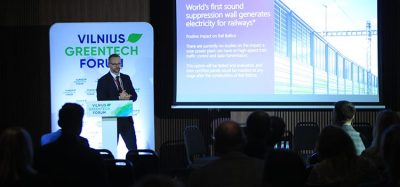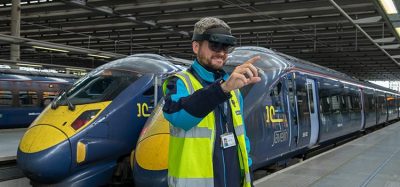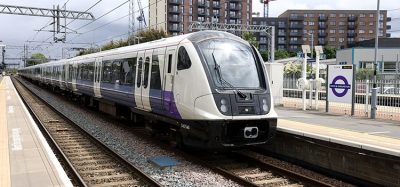Sustainable mobility: Myth or reality?
Posted: 16 March 2020 | Benoit Gilson | No comments yet
Exclusively for Global Railway Review’s ‘Improving Rail’s Environmental Impact’ series, Infrabel’s General Manager for Strategy, Corporate & Public Affairs, Benoît Gilson, writes about the challenges and projects inside Infrabel regarding CSR and sustainability.
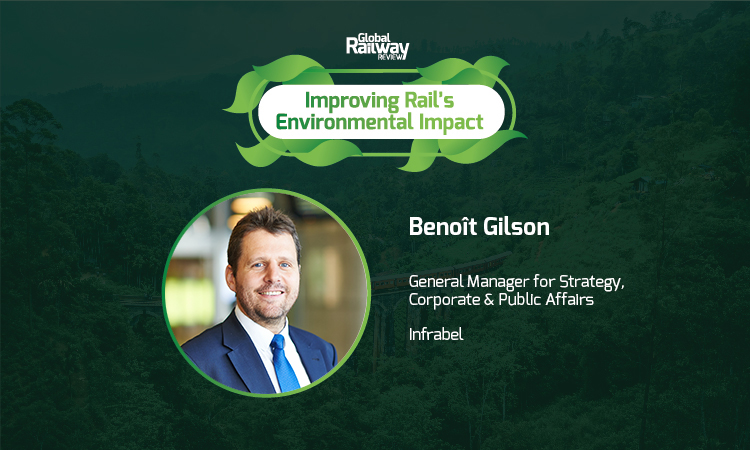

Sustainable development has become an inescapable topic of debate. People are mobilising in the streets, protesting against climate change and changing their consumer behaviour. Businesses are developing new, more sustainable economic models. Governments and public authorities are issuing directives on sustainability. The time when sustainable development was only the prerogative of a few sections of the population is definitely over. Sustainability is key to many debates: Climate change, CO2 emissions, biodiversity protection, the circular economy, the fight against inequality, and so on.
The transport sector is often has a bad reputation, particularly when it comes to CO2 emissions. However, due to its sustainable nature, the rail sector is also considered to be a positive factor in sustainable mobility and one of the solutions for combating climate change.
What is sustainable mobility?
The term sustainable mobility is often bandied about indiscriminately, however. What does it mean, exactly? What is sustainable mobility?
If we want to offer truly sustainable mobility, we must, of course, ensure that our activities have as little impact as possible on the environment.
If we want to offer truly sustainable mobility, we must, of course, ensure that our activities have as little impact as possible on the environment. However, it is also essential to keep the human factor in mind, respond to our stakeholders’ expectations and anticipate developments in society, otherwise our societal role may be side-lined.
Rail infrastructure managers are definitely an essential link in sustainable mobility but, to guarantee our position, we need to consider the whole picture. We need to innovate to create shared values with other sustainable players; include ‘millennials’ in our planning; consider the multiple aspects of sustainable development; anticipate societal risks by connecting five current major issues: environmental integrity, a shared view of multimodal transport, responsible digitalisation, the circular economy and the war for talent.
Environmental integrity
Beyond our legal obligations, we must consider whether our activities are in conflict with the ecosystem in which we live. If we want to play a key role in sustainable mobility, we must understand the cause and effect relationship between our activities and our environment. In this regard, Infrabel considers many different aspects, such as: reducing noise disturbances, energy efficiency (reducing use, sustainable alternatives, etc.), reducing CO2 emissions, biodiversity protection, ecological management of our sites, and so on.
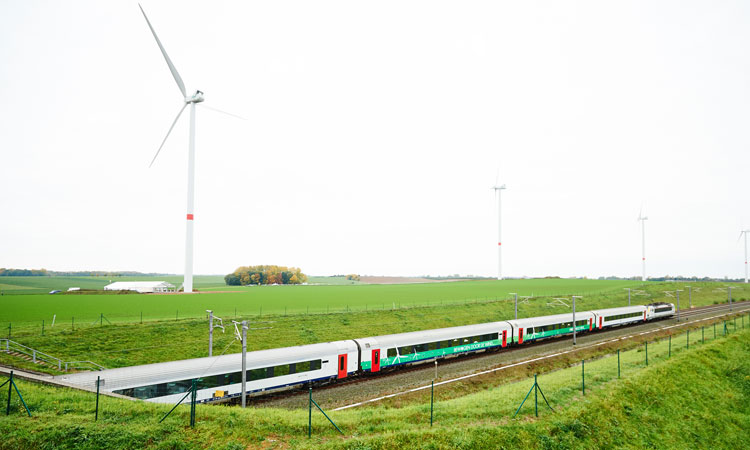

To play a key role in sustainable mobility, Infrabel knows it must understand the cause and effect relationship between its activities and the environment.
Shared vision of multimodal transport
Rail certainly has a role to play in freeing up roads and stopping them from becoming completely saturated with more and more lorries, as well as reducing transport-related CO2 emissions.
In addition to measures aimed at reducing the environmental impact of our activities, mobility must be considered as a whole, in order to produce a shared vision with all mobility stakeholders that contribute to sustainable and intermodal mobility, in the broadest sense of the term. This will involve solutions for both passenger and goods transportation, as the latter is constantly increasing due to the growth in online shopping. Rail certainly has a role to play in freeing up roads and stopping them from becoming completely saturated with more and more lorries, as well as reducing transport-related CO2 emissions.
In comparison to other modes of transport, in fact, rail still has considerable opportunities for growth. For example, at the Port of Antwerp, rail transport now represents seven per cent of total goods transport. This figure is 55 per cent for road transport and 38 per cent for inland waterways. Infrabel aims to increase the share of rail transport through a global, multimodal approach.
Responsible digitalisation
No person and no industry can escape digitalisation. We are experiencing a genuine digital revolution that impacts our lifestyles and the way businesses work. Although digitalisation has caused some disruption in recent years, it has also been an opportunity for innovation in many sectors, including the rail sector, at different levels: Driver assistance systems, improved security, simplified administration, virtual reality, time saving, and so on.
Digitalisation has opened up new prospects within Infrabel, and there is still plenty more to be done. We are continuing to explore new ways forward, while bearing in mind the social and environmental impact of digital tools, such as the digital divide and pollution related to the use of digital tools (production, consumption and end of life). A responsible approach to digitalisation must be an integral part of the aspects to be considered in terms of sustainable mobility.
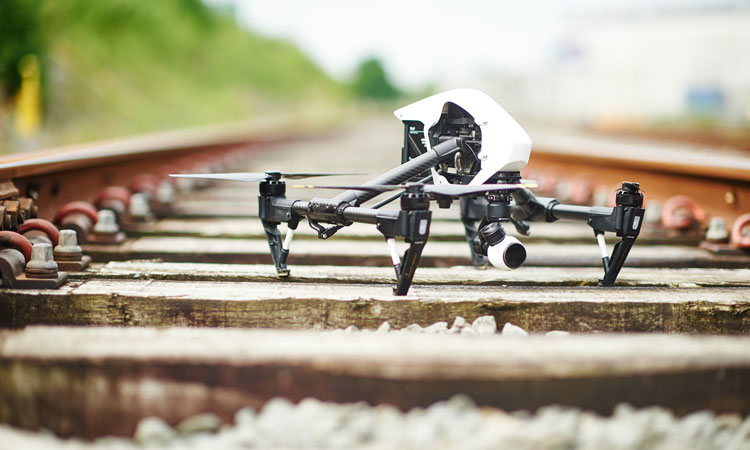

Infrabel understands that a responsible approach to digitalisation must be an integral part of the aspects to be considered in terms of sustainable mobility.
Circular economy
Sustainable mobility also means a more responsible supply chain that pays specific attention to the social and environmental impacts of procurement. Buying sustainably means respecting human rights, employment law and environmental law, thereby helping to reduce social and climate inequalities. We encourage our suppliers to follow a sustainable development approach. Integrating a sustainable reflex into a procurement policy also means questioning how you buy and thinking more long-term.
We encourage our suppliers to follow a sustainable development approach.
Natural resources are diminishing and, as a result, prices are rising, so the whole logic of the economic model must be rethought from a sustainable development perspective. In this regard, the circular economy represents the economy of the future, in which Infrabel is keen to play a part, specifically and initially through pilot projects. This will deliver many advantages: a reduced need for raw materials, extending the product lifecycle, cutting CO2 emissions, reducing long-term costs, developing new skills, innovation, and so on.
War for talent
We belong to a highly competitive technical sector in which the search for talent has become crucial to ensuring optimum working conditions and a high level of service. In Belgium, the unemployment rate is at an all-time low. Our sector has also undergone many changes, particularly with the arrival of new technology. By 2024, however, Infrabel will need 3,360 new employees, mainly in roles where there is a shortage of talent: electromechanical engineers, civil and industrial engineers, etc. It’s a huge challenge!
However, we see an opportunity in it – the opportunity to leave our comfort zone and go in search of new talent. Female talent has long been ignored in our sector – around 11 per cent of Infrabel’s staff are women. We want to increase this figure and explore this pool of talent to the full. Our motto is: to work for us, only talent and enthusiasm matter! We follow an inclusive approach in which diversity and equal opportunity are the guarantees of wellbeing, performance and innovation. A job well done has no gender, colour, limits or age! We’re all different, but we all belong to the ‘railway family’.
So, is sustainable mobility myth or reality?
Sustainable mobility could well be a myth, unless we make sure that the three pillars of sustainable development (people, planet and prosperity) are balanced against the social trends and challenges facing us. But, it’s up to us, the whole of the rail sector, to make it a reality. How? By considering all of the sustainable parameters and focusing on co-creation, not forgetting the human factor, and trying to ensure consistency in the choices we make.


If you would like to take part in our Improving Rail’s Environmental Impact series, please email: Craig Waters, Editor, Global Railway Review.
Related topics
Digitalisation, Multimodality, Noise & Vibrations, Operational Performance, Regulation & Legislation, Sustainability/Decarbonisation, Technology & Software




